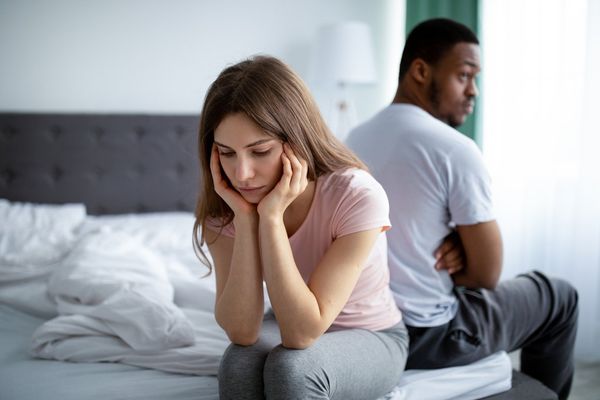Q:
I have lost interest in having intercourse with my husband because many times I get a burning sensation. Also, I often get infections afterwards. Do other women experience this problem and what can be done about it?
A:
One of the most common causes of painful sex in women is vulvodynia, defined as discomfort or burning pain in the vulvar area with no obvious cause, such as an infection, cancer, or neurologic disorder like herpes or spinal nerve compression. This common cause of vaginal pain is frequently misdiagnosed. The condition is estimated to affect about 16 percent of women; a number some researchers suspect may be much higher. The pain often prevents women from exercising, having intercourse, and, in extreme cases, even walking.
READ: Does Your Vagina Burn During Sex?
No one really knows what causes it, although some theories suggest it may come on in relation to a particular event, like childbirth, infection or surgery. Other possible reasons include genital infections, physical or sexual violence, or even women with the condition may have lower pain thresholds than women without. One study found that women with VVS have fewer estrogen receptors in the vulvar region, which may relate to their increased pain sensations.
Make sure you tell your health care professional you want to be evaluated for vulvodynia; in one of the few surveys to look at the issue of diagnosis, only nine percent of women who sought treatment received a diagnosis of chronic vulvar pain; the rest were diagnosed as having some form of vaginal or pelvic infection or other condition.
There are many possible treatments for vulvodynia, ranging from diet, Kegels (exercises that strengthen the pelvic floor) and biofeedback, to medical approaches including low doses of antidepressants and lidocaine ointment used at night to numb the vulva. For severe cases, doctors may inject anti-inflammatory chemicals called interferon alfa into the vulvar vestibule, the folds around the vagina, three times a week for four weeks. Studies find some benefits in some women, possibly because it relieves painful inflammation.
You also may be experiencing vaginal dryness, most common in women over 40 and especially those who are postmenopausal. The loss of estrogen after menopause causes thinning in the walls of the vagina and the urethra and dries vaginal secretions, leading to pain during intercourse. It also increases your risk of vaginal infections, like vaginitis, and can cause urinary problems.
Luckily, there are several treatments available, ranging from over-the-counter water-soluble lubricants, which you can find in most local drugstores, to prescription hormone creams suppositories, and even a diaphragm-like device you insert into the vagina. Unlike oral estrogen, the hormone creams are only absorbed somewhat by your body; the suppositories and ring are not, and so are thought to carry fewer health risks.
It's very important that you talk to your health care professional about this problem, because numerous other medical conditions can cause vaginal pain such as you're describing, many of which can be easily treated. Also, it's very important that you and your husband are tested when you have an infection.
When you do see a health care professional for this problem, you should receive a thorough medical history and pelvic exam, including cultures for fungal and bacterial infections, and a test for bacterial vaginosis. A common test for vulvar pain involves using a moist, cotton-tipped swab applied to the various areas of the vulva to pinpoint areas of pain.
And, of course, it's important that your husband understand the reason behind your lack of interest in sex. Tell him about the pain, and assure him that it's not something he's doing. Also make sure he knows you're seeking help—and that your sex life should return to normal soon.







